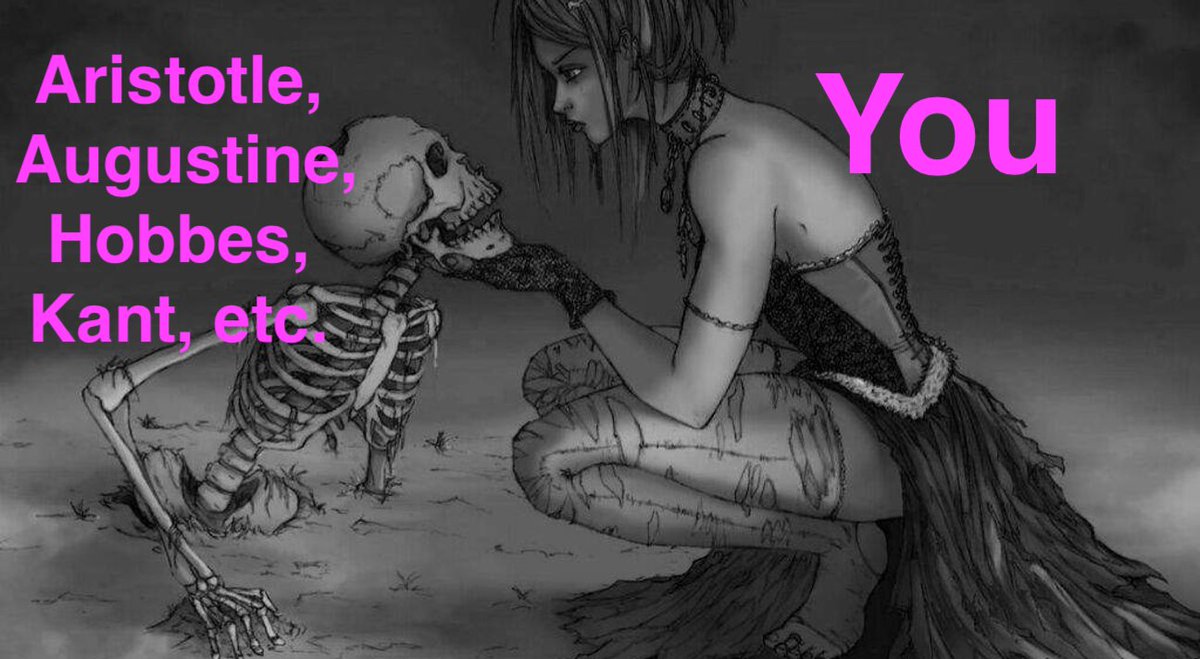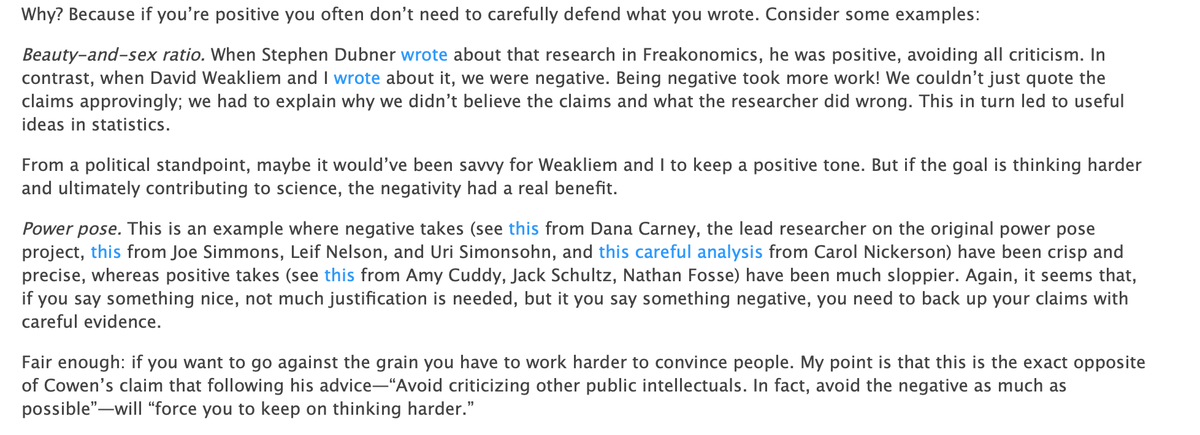
This got me thinking about how tech optimism feels performative to me--performatively upbeat ("what will Friday bring?!") & performatively naive (see @paulg on "earnestness" linked below)--and then I thought about "virtue-signaling" and...1/X paulgraham.com/earnest.html
https://twitter.com/AgnesCallard/status/1338130864581054467
...maybe the performative aspect of emotion *is just emotion*...?
The conceit, in dismissing some expression of emotion as "signaling" or "performance", is that the person isn't really feeling it--that they are *not* experiencing the relevant emotion privately, it's "fake." 2/X
The conceit, in dismissing some expression of emotion as "signaling" or "performance", is that the person isn't really feeling it--that they are *not* experiencing the relevant emotion privately, it's "fake." 2/X
But what's the contrast case supposed to be? Private emotion? Is there such a thing? Emotion "wants out," it needs expression, and that's because it doesn't even fully get to be the emotion that it is until it is expressed. 3/X
It's not until I can express my anger that I am able to really feel it--this is precisely why emotional expression (to the right interlocutor(s)!) is so important, and why people who don't want to feel their emotions don't want to talk about them either. 4/X
So: we depend on others for understanding our emotions, which is to say, for even *having* those emotions. The "others" can be our partners in close personal relationships, or they can be members of some group we belong to. These groups--large & small--make emotions possible. 5/X
Emotions are social. But that also means that emotions constitute a kind of "shared language" w/i the group. People standing on the outside, who cannot speak the language, see nothing but a "performance" designed to cement group-membership. 6/X
And there might be some of that--people expressing emotion in order to be in the group--but I suspect there's more of: people being in the group in order to express emotions. Because, basically, if they are free, people join the groups that allow them to express who they are. 7/X
And sometimes it isn't until you find that group that it's even possible for you to express/have the relevant emotion. Maybe you wouldn't/couldn't have expressed it to your close friends/family. That doesn't make the emotion fake. 8/X
When the group's emotional communication is public (eg social media), it ends up being seen by many who cannot understand or participate in it, and serves only to remind them of their outsider status. So they (I!) cynically denigrate it as "mere performance." 9/X
Because the internet allows so much freedom of association, it allows for the formation of many different kinds of (emotional-support) groups--tech optimists and social justice warriors being two (admittedly loosely defined) examples. But it also allows people to see... 10/X
...just how many groups they're *not* part of. So maybe the moral of the story is that instead of dismissing other peoples' emotions, we need to get better at accepting the reality of our own exclusion, which is to say, the existence of all the new languages we don't speak. 11/X
• • •
Missing some Tweet in this thread? You can try to
force a refresh






